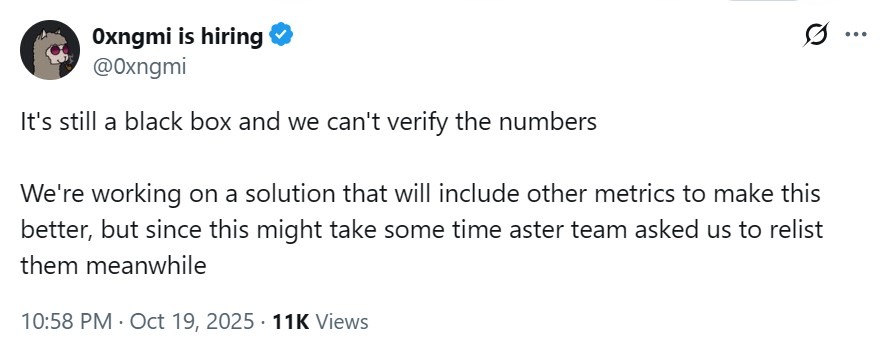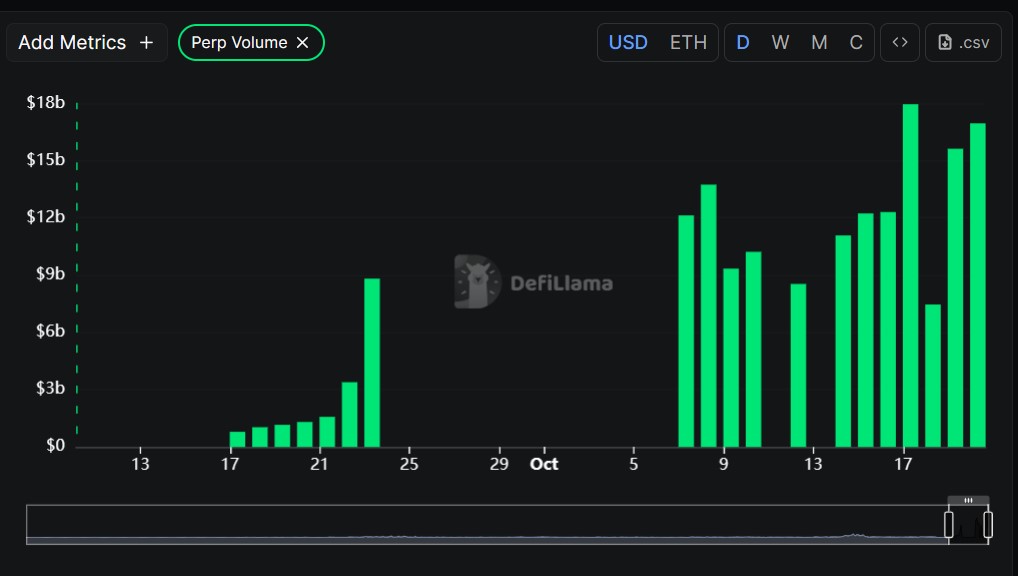
Aster‘s Re-emergence on DefiLlama: A Quiet Return
Decentralized finance (DeFi) data aggregator DefiLlama recently reinstated decentralized exchange (DEX) Aster to its platform, a move that has stirred renewed discussion within the crypto community. The quiet nature of the relisting, occurring weeks after Aster‘s initial removal due to disputed trading data, has raised eyebrows and prompted questions about data integrity and the evolving role of data providers in the DeFi ecosystem.

Missing Data: A Challenge for Analysis
Dragonfly managing partner Haseeb Qureshi highlighted the situation on X (formerly Twitter), pointing out the absence of public announcements from either Aster or DefiLlama regarding the reinstatement. A key concern arising from the delisting and subsequent relisting is the significant gaps in historical data. This fragmentation presents a substantial hurdle for those relying on DefiLlama’s analytics. Traders, researchers, and model builders use this data for a variety of tasks, like evaluating performance, or identifying trends. The missing historical data effectively resets Aster‘s operational footprint within the analytics, hindering longitudinal comparisons and potentially skewing assessments of its market impact. Comparisons of market share trends, fee generation, or cumulative revenue charts are incomplete, and potentially misleading without a complete dataset.

The “Black Box” and the Search for Verifiable Data
DefiLlama’s founder, known as 0xngmi, acknowledged the ongoing challenges in verifying Aster‘s data, describing it as a “black box.” The team stated they are developing a new system to incorporate additional metrics for improved data validation, however, Aster’s team requested immediate relisting. This reveals the complexities of verifying data in decentralized markets. The core issue revolves around distinguishing legitimate trading activity from wash trading, which artificially inflates volume and creates a misleading impression of market interest. Without the ability to reliably identify market actors and order flow, it becomes challenging for platforms to produce correct data.
Transparency and the Power of Data Providers
The initial delisting of Aster ignited a broader debate regarding the authority and responsibility of data providers in the DeFi space. DefiLlama has, in many ways, become an important resource for the crypto community. The Aster incident illustrates how quickly data integrity concerns can erode trust within the ecosystem. The incident has also fueled conversations surrounding the centralization of data provision, with some critics suggesting DefiLlama is acting as a centralized gatekeeper. This brings into sharp relief the imperative for transparency, verification, and the development of robust methods for assessing the validity of on-chain data.
Looking Ahead: Navigating the DeFi Data Landscape
Despite the data gaps, Aster has re-emerged in the lead in certain trading volume metrics. This situation underscores the need for improved data validation techniques and more transparent reporting practices. As DeFi continues to grow, ensuring the accuracy and reliability of data will be crucial for fostering trust, attracting institutional investors, and promoting the long-term sustainability of the decentralized finance movement.


